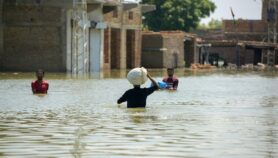By: Lisbeth Fog
Send to a friend
The details you provide on this page will not be used to send unsolicited email, and will not be sold to a 3rd party. See privacy policy.
[BOGOTÁ] Colombia and Costa Rica are among the top ten nations in a ranking of excellence in environmental performance.
The 2008 Environmental Performance Index (EPI), conducted by US universities Yale and Columbia, was announced last week (23 January) at the World Economic Forum in Davos, Switzerland.
Costa Rica was ranked fifth and Colombia ninth, behind the top ranking nations Norway, Sweden and Switzerland. In the first EPI, conducted in 2006, Costa Rica was ranked fifteenth and Colombia seventeenth.
"Ranking ninth amongst 149 countries around the world and second in America after Costa Rica is a great achievement for Colombia," says Marta Pizano, a Colombian biologist who last year received the Best of the Best prize from the US Environmental Protection Agency.
"The EPI ranking reflects a strong policy network already in place [in Colombia], as well as a high level of awareness towards these very important issues," she adds.
The EPI looks at success in environmental protection based on two broad objectives: reducing environmental stress on human health, and promoting strong ecosystems and sound natural resource management.
The index measures 25 indicators in six different areas: environmental health, air pollution, water, productive natural resources, biodiversity and habitat, and climate change.
Costa Rica came out best in several categories, including tackling air pollution, water stress, irrigation stress and land-burning, and improving forestry.
It also scored well in reducing industrial carbon intensity, aiming for low carbon growth in industrial sectors by investing in energy conservation and clean technologies, and making other policy changes to help lower carbon emissions.
Colombia performed particularly well in forestry, fisheries, cropland use and reducing local ozone — or ground level ozone, a pollutant from human activities that causes significant health problems.
According to Jorge Sánchez, national coordinator of the Ozone Technical Unit at the Environmental Ministry in Colombia, improved performance in the ozone category was the major reason for Colombia’s rise in the rankings.
Colombia reduced the national consumption of ozone depleting substances, such as chlorofluorocarbons in appliances like freezers, by 86 per cent between 1995 and 2007, says Sánchez.













